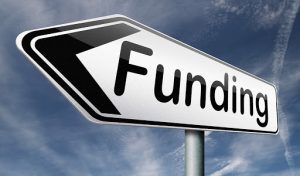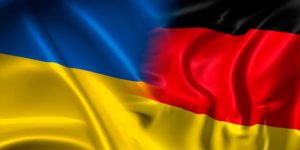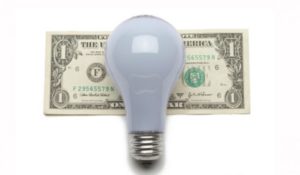
The winners of the annual LIT Lighting Design Awards 2020 in certain categories were lighting for a Boulevard of Arts in Dnipro city, interactive media sculpture The Cube in Kyiv, the Odesa Food Market and the Freedom Square in Mariupol (Donetsk region), according to the award’s website.
“The professional world community praised the projects of our Expolight team: the Odesa Food Market, interactive media sculpture The Cube in the Chicago Central House residential complex, the Boulevard of Arts in Dnipro and the Freedom Square in Mariupol,” the founder of the lighting company Expolight Mykola Kabluka said.
The media sculpture The Cube in the Chicago Central House residential complex was recognized the best in Interactive Lighting Projects, the Boulevard of Art, a new creative cluster in the center of Dnipro, is the winner in Landscape Lighting, Odesa Food Market is the winner in Hotel and Restaurants Lighting. The project of lighting the Mariupol Freedom Square was awarded in the honorable mentions of LIT Lighting Design Awards 2020.
LIT Lighting Design Awards is a global lighting design competition headquartered in Los Angeles, California, the United States. This year, members of the LIT jury evaluated more than 350 applications from 43 countries.

At the 22nd Ukraine-EU Summit, Kyiv signed three agreements with the European Commission and three agreements with the European Investment Bank (EIB) aimed at financing various projects.
In particular, an agreement to finance the EU4ResilientRegions programme for EUR 30 million was signed between the Ukrainian government and the European Commission.
According to the document, the EU4ResilientRegions programme aims at enhancing the resilience of eastern and southern Ukraine to the negative impacts of the ongoing conflict, including to hybrid threats and other destabilizing factors. The action will also address most recent destabilization factors such as the COVID-19 pandemic and its social and economic impact. In response to the conflict in eastern Ukraine and the illegal annexation of Crimea and Sevastopol, this action will aim to enhance Ukraine’s overall resilience, notably to hybrid threats.
The Civil Society Facility programme for EUR 20 million was also signed between the Ukrainian government and the European Commission. The programme focuses on social innovation and active citizenship as core principles for civic engagement and the premises for sustainable democratic societies. It aims to support the capacity of civil society organizations to engage in policy dialogue, to act as governance actors and to drive the country’s social and economic development.
In addition, the Climate package for a sustainable economy (CASE) programme for EUR 10 million was signed between the Ukrainian government and the European Commission.
This programme supports Ukraine in the implementation of measures towards a climate neutral, clean and resource-efficient economy. This includes support in areas such as circular economy and waste management, energy efficiency, emission-free urban transport as well as support to climate mitigation and adaptation.
In addition, this agreement provides for the creation of a joint resource center for climate innovation between Ukraine and the EU and the implementation of “green” measures within the framework of the National Transport Strategy until 2030.
All three documents were signed by Deputy Prime Minister of Ukraine for European and Euro-Atlantic Integration Olha Stefanishyna and Member of the European Commission for European Neighbourhood Policy and Enlargement Negotiations Olivér Várhelyi.
Three agreements with the EIB were signed.
Minister for Communities and Territories Development of Ukraine Oleksiy Chernyshov and Vice-President of the European Investment Bank Teresa Czerwińska signed an Agreement between the Government of Ukraine and the EIB on financing the Energy Efficiency of Public Buildings in Ukraine project. The loan will enable the installation of modern equipment in buildings, such as meters and energy consumption control systems, the modernization of heating, ventilation and lighting systems, and upgrades to exterior surfaces (facades, roofs, slab insulation, basement ceilings, replacement of windows and doors).
Also a EUR 30 million loan provided for by the guarantee agreement Logistic Network (Ukrposhta modernization and digitalization) was signed by Ukrainian Infrastructure Minister Vladyslav Krykliy, CEO of Ukrposhta JSC Ihor Smelyansky and Vice-President of the EIB Lilyana Pavlova.
The loan will allow Ukrposhta to start modernizing its logistics network with three new sorting hubs, 20 postal depots and IT infrastructure. The beneficiary is to return the loans within 20 years.

The volume of financing projects of the Black Sea Trade and Development Bank in Ukraine in the first half of 2020 increased by EUR 34.17 million, or 20.8%, to EUR 198.72 million, according to the bank’s report on the stock exchange.
According to the report, amount of unfulfilled obligations on projects in Ukraine during this period almost halved, to EUR 35.28 million.
As reported, in 2019, the amount of Ukrainian projects in the bank’s loan portfolio increased from EUR60.3 million to EUR 164.6 million, and their share from 4.4% to 8.9%, with the country’s share in the equity capital of 13.5%. In the first half of the year, the share of Ukrainian projects was 10.1%.
In general, the bank indicates that in January-June this year it managed to increase net interest income by 43.8%, to EUR 20.93 million, net operating income by 31.7%, to EUR 20.44 million, and net profit by 36.8%, to EUR 4.36 million.
The total assets of the bank for the specified period rose by 5.6%, to EUR 2.47 billion.
The bank recalled that in July 2010 it issued bonds worth EUR 150 million to increase its liquidity and assistance for post-pandemic recovery in the Black Sea region.
The bank aims to promote economic cooperation, trade and cooperation of the countries of the Black Sea region.

Ukraine’s Foreign Minister Dmytro Kuleba and Minister of Foreign Affairs and International Cooperation of the United Arab Emirates Sheikh Abdullah bin Zayed Al Nahyan during a telephone conversation agreed to start work on common investment projects, the Foreign Ministry reports.
“We should focus on the implementation of investment projects with Ukraine in priority areas. We will work on a synergy of opportunities between Ukraine and the UAE to strengthen global food security,” the Foreign Ministry press service said citing Kuleba.
Kuleba, according to the agreements of the leaders of Ukraine and the UAE, reached during the telephone conversation on April 13, noted his readiness to intensify cooperation in investment, trade and economic spheres between Ukraine and the UAE.
Kuleba thanked the UAE for the humanitarian aid provided, as well as for helping bring back more than 3,000 Ukrainian citizens from the UAE and in transit from other regions of the world.
“We are deeply grateful to the UAE for humanitarian assistance, which is extremely important for Ukrainian doctors in the context of the fight against coronavirus. The UAE demonstrates partnership and true friendship,” the minister emphasized.
The foreign minister invited his colleague to visit Ukraine.

The German-Ukrainian Fund (GUF) jointly with financial partners – OTP Leasing, Oschadbank and Ukrgasbank – has started implementing the FinancEast program to finance investment projects of small and medium-sized enterprises (SME) in government-controlled areas of Donetsk and Luhansk regions.
An Interfax-Ukraine correspondent has reported that GUF signed agreements with OTP Leasing, Oschadbank and Ukrgasbank under the program in Kyiv on Thursday.
To implement the FinancEast program, the European Union provided Ukraine with a grant of EUR 9.5 million through the German development bank KfW. Grant resources will be provided to SME in the form of compensation up to 50% of the cost of investment projects financed by OTP Leasing, Oschadbank and Ukrgasbank. Investment projects include the purchase of agricultural machinery, equipment, vehicles, installation, construction and reconstruction of premises on a lease or loan.
“I am very glad that this program was decided to be implemented on the basis of GUF. We are impressed that this program is aimed at investments, at hryvnia lending to the regions that need financing most. And with the help of GUF we provide what our creditors require – transparency, reporting and effectiveness of these programs,” GUF Executive Director Oleh Strynzha said at a briefing.
First Deputy Governor of the National Bank of Ukraine (NBU) Kateryna Rozhkova said that the NBU is taking a number of measures aimed at enhancing lending, including lending to SME, which can become a driving force for the country’s economic development. “In December, we eased the requirements for banks when lending to private entrepreneurs and new enterprises. And we hope that this will greatly facilitate not only the work of banks, but also the entrepreneurs themselves… The second point: we continue working on the development of such instruments as guarantees and compensation tools for SME together with our donors and the government,” she said.

The Energy Efficiency Fund plans within five years to finance over 16,000 projects under the Energodom program to support energy-efficient modernization for homeowner associations, Director of the fund Yulia Holovatiuk-Ungureanu has said.
“Our Energodom program began its work on September 3. We are starting the phase of project implementation. We plan that by 2023 almost 9,000 projects will be implemented, and by 2025 more than 16,000 projects,” the director of the fund said during the presentation of the Energodom program on Wednesday.
According to her, by the end of 2025, gas savings due to energy-efficient modernization will amount to 1.5 billion cubic meters.
The Minister of Development of Communities and Territories of Ukraine Olena Babak said that energy-efficient modernization will reduce the level of thermal energy consumption for the “light” package by 20%, for the “complex” package – by 60%.
In addition, 720 energy auditors have passed certification to date, and over the next two years their number should grow to 5,000, Hennadiy Zubko, Deputy Prime Minister and Minister of Regional Development, Construction, Housing and Utilities Economy in 2014-2019, said.
EFFICIENCY FUND, ENERGY-EFFICIENT, FINANCE, MODERNIZATION, PROJECTS